How the Atelier Dusk trilogy explores a “present-apocalyptic” narrative
With the release of the Atelier Mysterious Trilogy DX editions just around the corner at the time of writing, I thought it would be a good time to look back on one of the most interesting trilogies in the series — and in particular at an aspect of its narrative that makes it stand out in the crowded, highly competitive field of Japanese RPGs.
As gamers, we’re very familiar with the various forms the apocalypse can take. We’ve spent many games averting apocalypses, and just as many dealing with the aftermath of apocalypses that have already happened.
But what’s interesting about the Atelier Dusk trilogy, which consists of Atelier Ayesha: The Alchemist of Dusk, Atelier Escha & Logy: Alchemists of the Dusk Sky and Atelier Shallie: Alchemists of the Dusk Sea, is the fact that they’re games which explore what it means to be living through an apocalypse right now. They’re “present-apocalyptic” games.
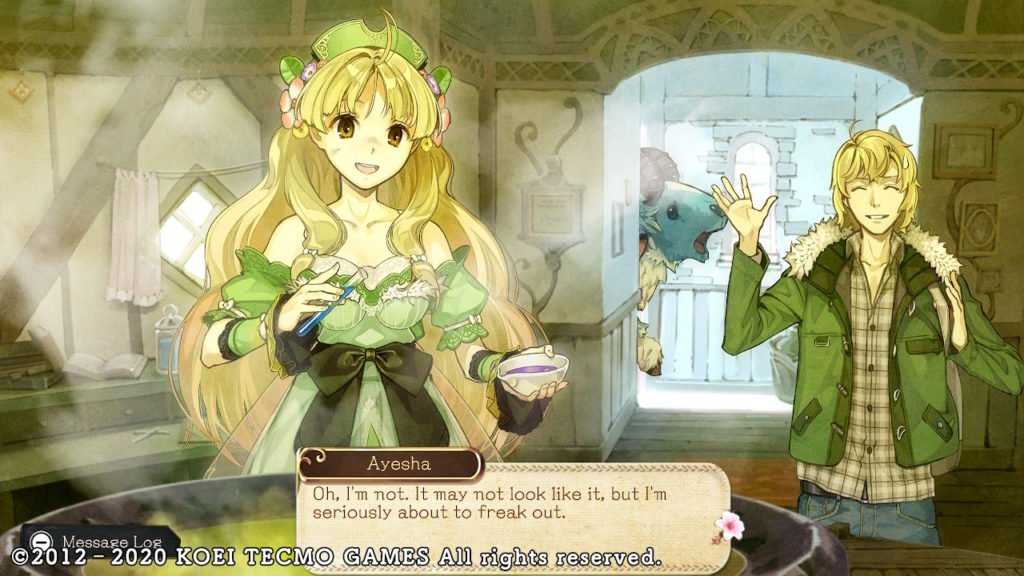
The word “apocalypse” is usually used in today’s parlance to describe some sort of cataclysmic, violent and spectacular end of the world, but if we look at the word’s Greek roots it actually means “an uncovering” of knowledge — the end times that result are usually a consequence of the apocalypse rather than the apocalypse itself. This means that the “end of the world” that we witness as part of an apocalypse doesn’t have to be fire, brimstone and Old Gods descending from the skies to reap souls; sometimes it can simply be a world quietly and seemingly inescapably reaching its final days.
Such is the case in the Atelier Dusk trilogy, where the recurring theme is that the world is doomed. No-one seems to know exactly why, other than the fact it involves the mysterious “Dusk”, which is gradually blanketing the land, bringing drought and quiet desolation in its path.
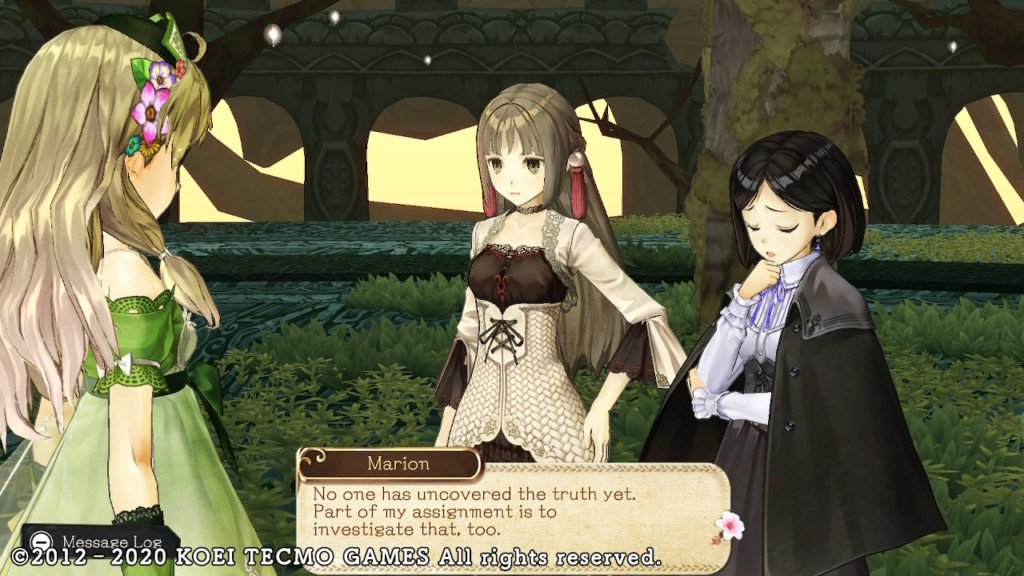
There has most certainly been an apocalypse in the sense of “uncovering of knowledge”, though; in the years prior to the start of Atelier Ayesha, the world has rediscovered the lost art of alchemy in both its traditional “bung everything in a cauldron and see what pops out” form and in a more focused, modern, machine-assisted style. At the time of Atelier Ayesha’s events and beyond, this is regarded as a positive thing, as not only does it allow for the creation of valuable things to help people survive in this dying world, it also allows for the study of a past age through its relics and its alchemical techniques.
A recurring theme throughout the Atelier series as a whole — particularly from Atelier Iris: Eternal Mana onwards — is that the concept of alchemy is not, in itself an inherently “good” or “evil” thing; it’s all about the people who use it and their intentions. Indeed, the three Atelier Iris games explore the consequences of people with ill intent getting their hands on the power of alchemy — and in the Atelier Dusk trilogy, there’s the implication that the Dusk is a direct result of alchemists from the past age getting greedy and overconfident as a result of their power.
This concept is mostly explored through the character of Keithgriff Hazeldine, who first shows up in Atelier Ayesha and initially appears to be something of an antagonistic character. We learn that he has destroyed the equipment of people that he didn’t consider “worthy” to wield the power of alchemy, and even threatens to do this to protagonist Ayesha at several points during his interactions with her.
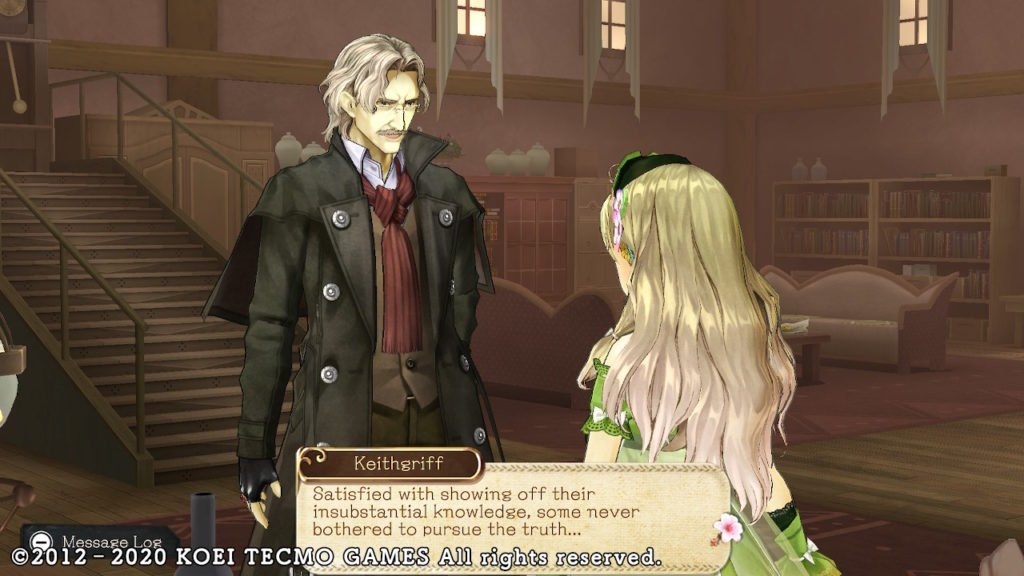
Ayesha, at this point, is seemingly barely aware that she is even using alchemy at all — she continually insists that she is just a herbalist or an apothecary for the majority of Atelier Ayesha, despite clearly achieving some astonishing feats — but Keithgriff takes an interest in her not only for her obvious natural talent, but also for the fact she is using it for a purpose he deems to be worthwhile: the pursuit of knowledge and understanding.
In Ayesha’s case, her study of alchemy is primarily to rescue her sister Nio from being “spirited away” before it is too late, but in the process she comes to understand a lot of things about the world and the people in it. Everyone is struggling in this present-apocalyptic world, and everyone is thankful for those who will help them out. Even more than that, though, everyone is especially grateful for Ayesha’s alchemy allowing them to live out some semblance of a “normal” life while clearly the world itself is not in a good state.
There are some obvious parallels to our own world that can be seen throughout the narrative of the Dusk trilogy as a whole, with the most obvious being the potentially irreversible impact that humans have had on the environment. It goes deeper than that, though; it’s so widely believed that said impact on the environment is irreversible that a lot of people are unwilling — or feel unable — to do anything about it, and thus they want nothing more than to feel like they can live out their days with some semblance of normality.
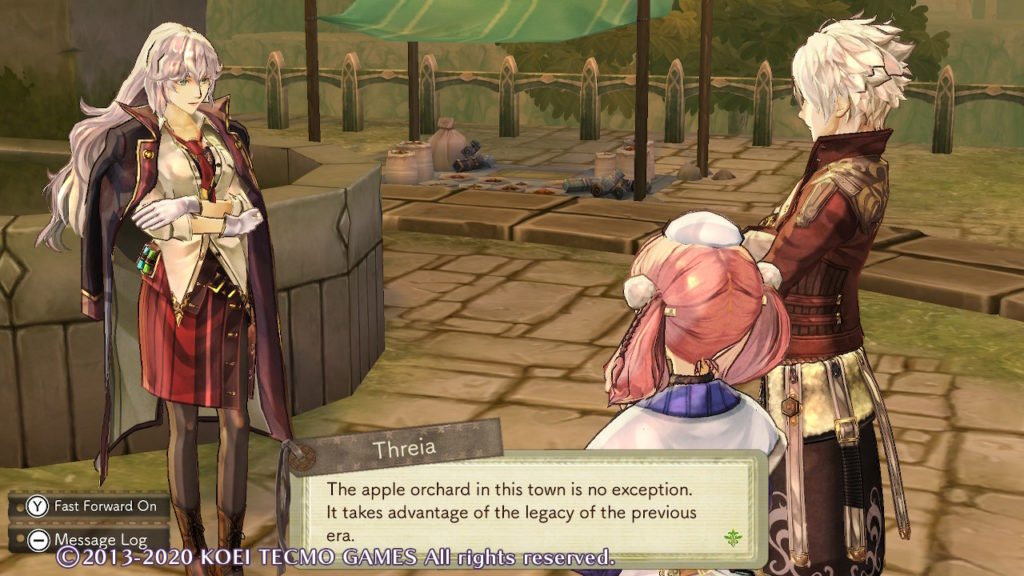
This concept is explored nicely in Atelier Escha and Logy, where the titular protagonists are employees of a local branch of the “Central” government. Central represents exactly the sort of obnoxious, bureaucracy-obsessed organisation that most people end up coming into contact with at some point in their lives these days, and Atelier Escha and Logy explores this concept from within. It’s not just satire of modern corporate life, though; it also represents an acknowledgement that when faced with an obvious crisis, some people’s response is to get really organised.
As an aside, Atelier Escha and Logy’s Japanese title (which can be transliterated as “Escha to Logy no Atelier”) is an effective pun on the concept of the end times, since “Escha to Logy” means “Escha and Logy”, but the word “Eschatology” means “study of the end times”; again, this term stems from Greek, which “eschatos” meaning “last” and “logy” meaning “the study of”. Entirely appropriately, of the two leads in Atelier Escha and Logy, Logy is the studious one while Escha is often a bundle of endearing chaos.
Escha and Logy explores the concept of “present-apocalyptic” from another interesting angle, too, which is reaching a point of acceptance that sometimes, you just can’t do anything. There’s a questline in the middle of the game that involves investigating why a village to the north of the game’s main town is experiencing a drought, and ultimately, after several explorations to the region, it becomes clear that there’s simply nothing that can be done. It’s a sad moment for the young alchemists, to be sure, but it also inspires them to do their best to keep their nearest and dearest safe for as long as possible.
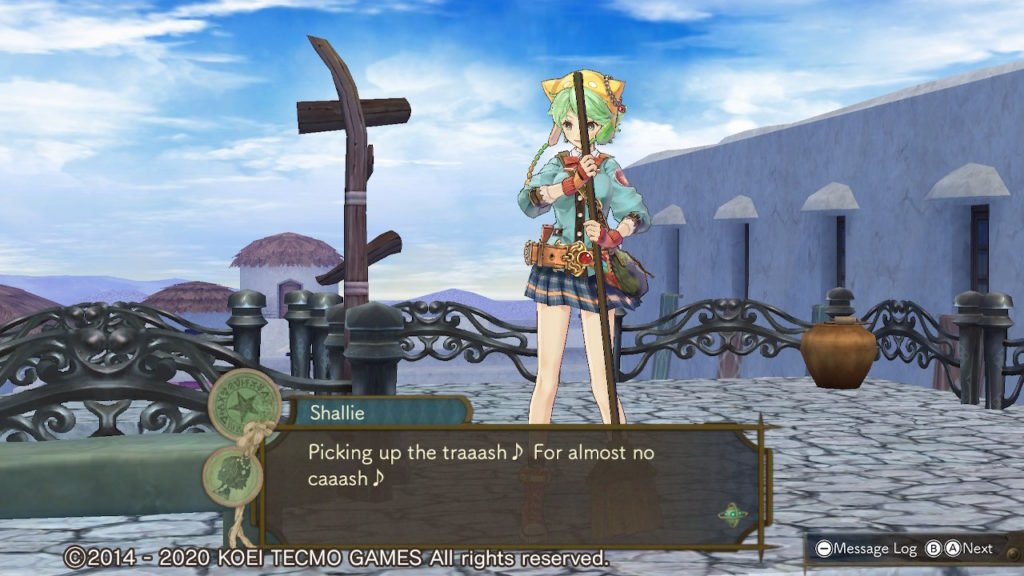
Third installment Atelier Shallie delves further into this side of things, with one of the two protagonists coming to the town of Stellard from her tribal village in an attempt to discover a solution to the drought her region is suffering. Stellard is regarded as a “City of Water” despite its position on the shoreline of the sandy “Dusk Sea” — and as Atelier Shallie’s narrative progresses, it becomes clear that it, too, is facing down its own water crisis, and that something needs to be done.
Atelier Shallie is where all the main threads from the previous two Dusk titles are drawn together. Ayesha and Keithgriff return in their pursuit of knowledge of the lost age after discovering the truth behind Nio’s disappearance in Atelier Ayesha; Escha and Logy likewise both end up in Stellard to help out with the investigation into the Dusk, what might have caused it — and perhaps how to defeat it. Logy observes that it is particularly unusual for so many alchemists to be gathered in one place outside of Central, but all of them have their own connection to the currently occurring apocalypse.
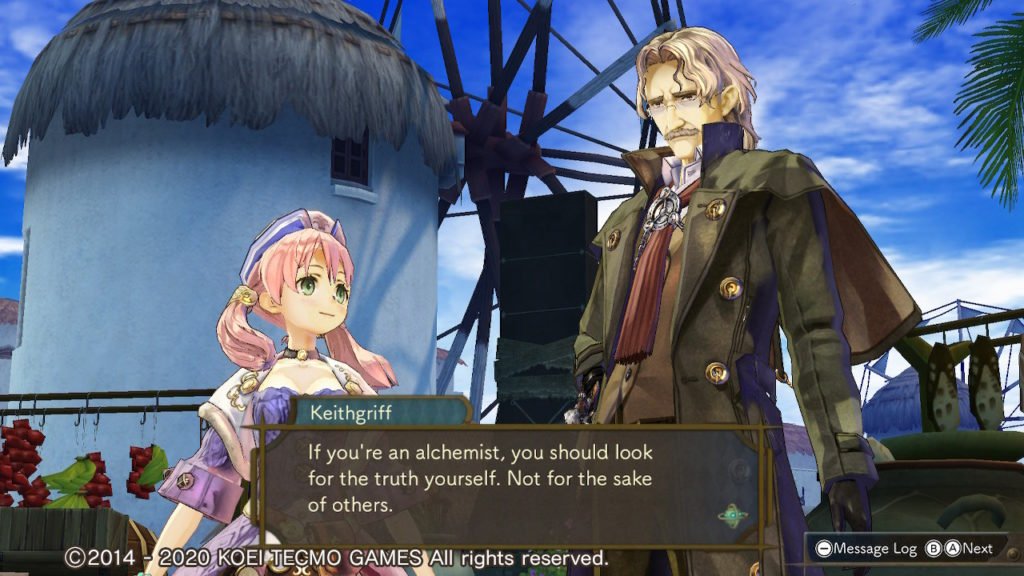
Is it possible to turn back the clock and avert an apocalypse once it is already underway? And, in doing so, does that mean losing out on the knowledge that was uncovered in the first place? These are questions that our assembled alchemists have to find out their own answers for as Atelier Shallie’s narrative progresses. And I’ll leave them for you to discover, too. After all, as Keithgriff says, if you’re an alchemist, you should look for the truth yourself — not for the sake of others.
Join The Discussion
Rice Digital Discord
Rice Digital Twitter
Rice Digital Facebook
Or write us a letter for the Rice Digital Friday Letters Page by clicking here!
Disclosure: Some links in this article may be affiliate links, which means we may earn a small commission if you make a purchase after clicking on them. This is at no additional cost to you and helps support Rice Digital!
- Letter from the Editor: passing the torch - June 30, 2023
- Super Woden GP 2 is looking promising - June 30, 2023
- Inti Creates is making a 32 bit-style Love Live action platformer - June 26, 2023






